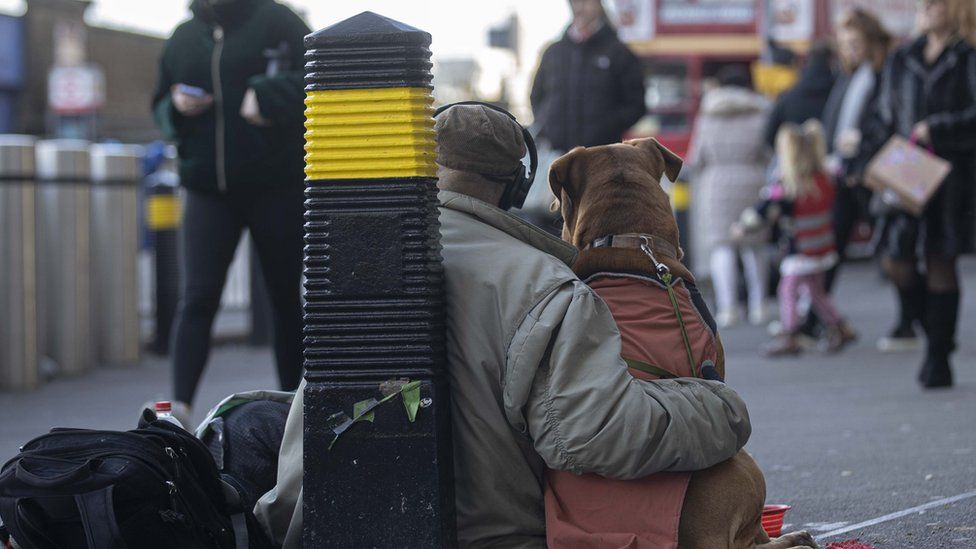Powers to move rough sleepers over 'smells' dropped after Tory opposition
- Published

The government has watered down planned police powers to deal with "nuisance" rough sleepers after opposition from Tory MPs.
Under changes to the Criminal Justice Bill, forces in England and Wales will no longer be able to move people on because of "smells".
Officers will also have to inform them of support services first before they can move them on for other reasons.
The move comes ahead of the bill's return to Parliament on Wednesday.
It follows meetings with potential Conservative rebels who had threatened to team up with opposition MPs to vote through similar changes.
However, homelessness charity Crisis said rough sleepers would "continue to be viewed as a nuisance".
The bill, drafted under former home secretary Suella Braverman, would deliver a longstanding government promise to get rid of Victorian-era legislation that currently criminalises rough sleeping.
It would replace this with new powers for police and council officials to direct "nuisance" rough sleepers to leave a place and not return for up to three days.
Those failing to comply could potentially be fined up to £2,500 or jailed for up to a month.
The draft law hit the headlines last month after some MPs objected to provisions that said rough sleepers causing "smells" could be considered a nuisance and therefore ordered to move on.
The Home Office now says this reference was only intended to tackle rubbish or "human waste" - but will now be removed entirely.
Powers to move people on for other reasons - including for damage to property or using threatening language - will remain.
But an amendment will specify that before this power can be used, rough sleepers will have to be told how they can access support services, such as addiction treatment or shelters.
Powers 'not needed'
A reference to giving "the appearance of" sleeping rough will also be removed, following warnings from critics this was too vague.
Policing Minister Chris Philp said ministers had "listened carefully" to critics of the bill and had agreed to make changes to ensure the new powers are "properly targeted".
He added the amendments would "ensure vulnerable people are directed towards support, while protecting communities from antisocial behaviour".
Crisis, the homelessness charity, said it was pleased that "some of the more outrageous measures" in the bill had been removed.
However, chief executive Matt Downie said rough sleepers would "remain at risk of fines and prison sentences," calling this "unacceptable".
"We have said time and time again that these powers are not needed," he added.
"If the Westminster government really wants to end rough sleeping, then it should focus on the things we know work - such as building thousands more social homes and increasing funding for support services like Housing First."
Related Topics
- Published12 November 2023
- Published7 November 2023
- Published29 February